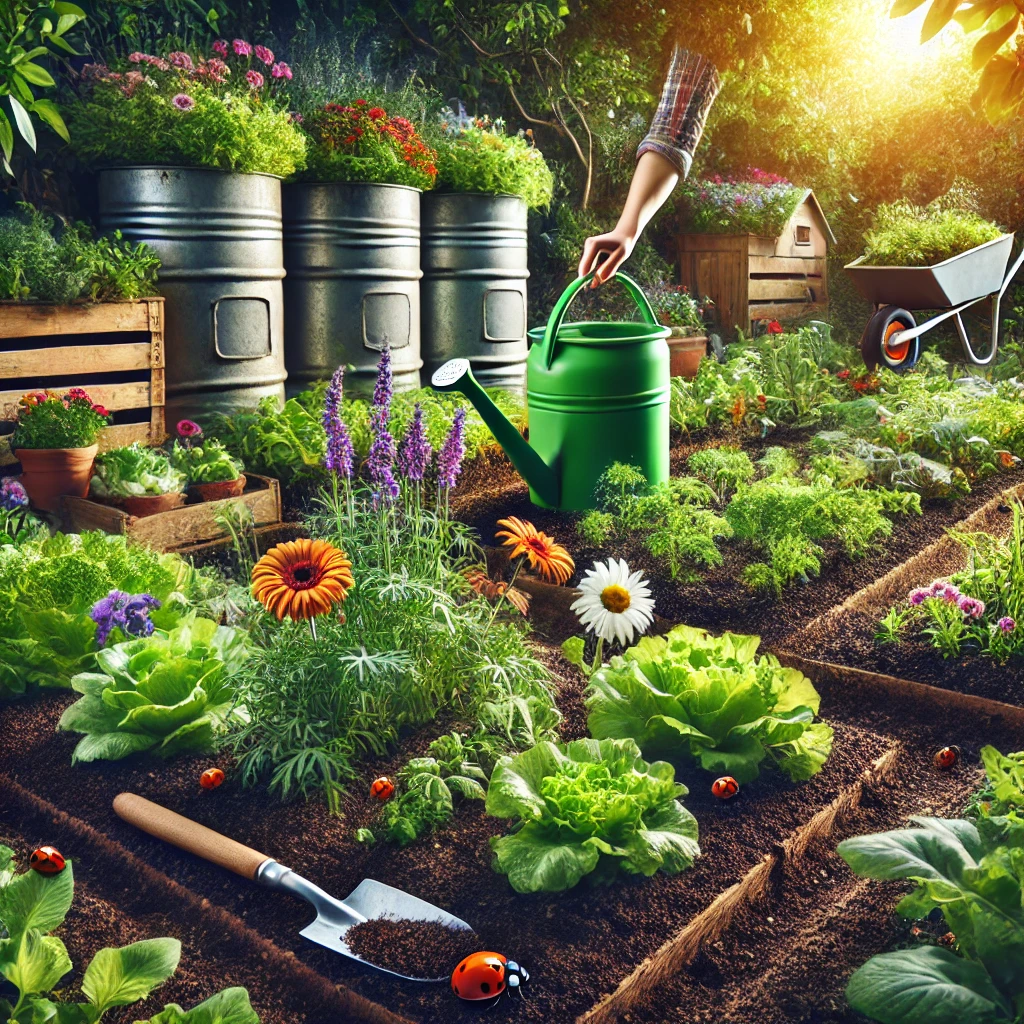Understanding the Basics of Organic Gardening
Knowing what makes organic gardening different from conventional gardening is the first step towards starting one. Instead of using artificial chemicals, organic gardening relies on organic techniques to feed the soil and plants. Composting, organic fertilizers, and natural pest control methods are a few examples of this. The intention is to establish a healthy ecosystem in which plants can flourish without the assistance of man-made resources. Adopting these techniques makes gardening more rewarding and environmentally beneficial by ensuring healthier produce and promoting biodiversity.
Choosing the Right Soil and Compost
The soil’s quality is crucial to the success of an organic garden. Strong, nutrient-rich soil will give plants access to the essential nutrients they need to ward off pests. Organic gardeners frequently use compost, which is created from manure, kitchen scraps, and yard waste, to increase the soil’s fertility. Making your own compost ensures that the garden’s nutrients remain sustainable and organic, improving soil structure and holding onto water while reducing the need for synthetic fertilizers.
Natural Pest and Weed Control Techniques
One of the difficulties with organic gardening is controlling weeds and pests without using artificial herbicides or pesticides. You can encourage beneficial insects to establish a home in your garden, such as ladybugs and predatory beetles, to help manage harmful pests. Another useful tactic is companion planting, which involves growing specific plants next to one another to ward off pests. Hand-weeding and mulching are great for keeping weeds under control, preserving the garden’s health naturally.
Watering and Maintaining an Organic Garden
Any garden needs to be watered regularly, but organic gardening places a greater emphasis on water conservation. Common practices include collecting rainwater and mulching plants to keep moisture in. Regular maintenance, such as crop rotation each season to prevent soil depletion and pest accumulation, is also beneficial for organic gardens. Your organic garden can yield a plentiful, chemical-free crop that supports long-term sustainability if it is properly cared for.
